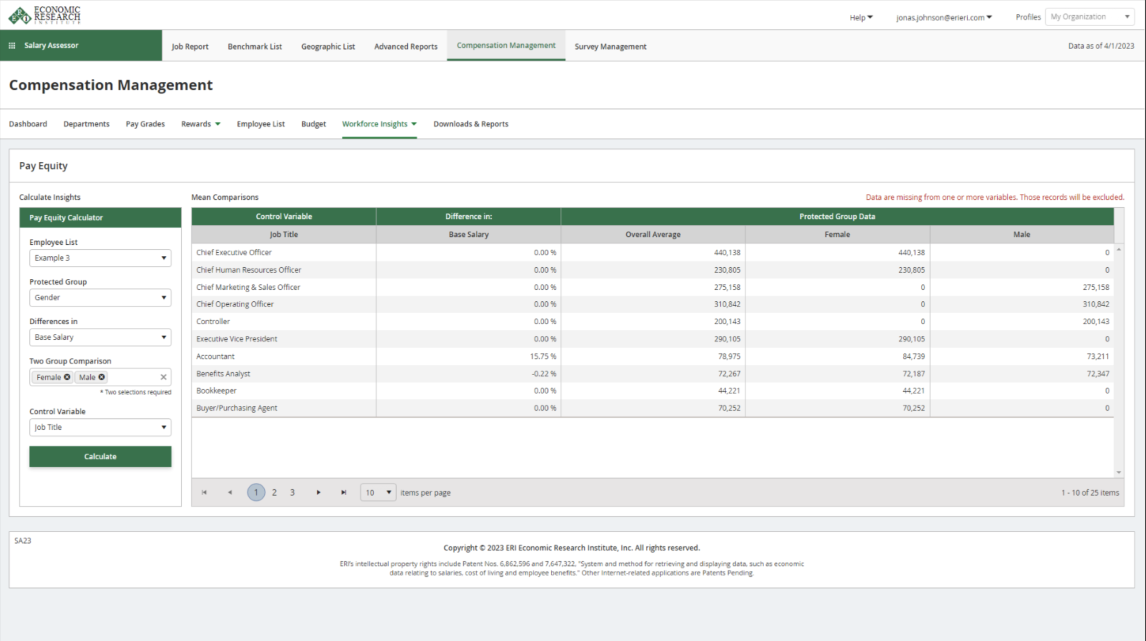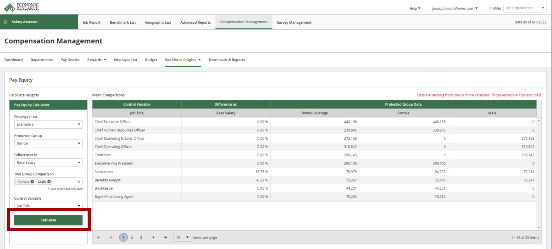Definition
What Is Pay Equity?
Pay equity is about eliminating any unfair discrimination related to gender, race, or other protected groups that may lead to pay disparities. It means ensuring that employees who are performing the same job, with the same qualifications and experience, are paid equally, regardless of their gender, ethnicity, or any other characteristic.
What Is Pay Equity?

Importance
Why Should I Care About Pay Equity?
As a compensation professional or business owner, pay equity is an issue of utmost importance. Ensuring that all employees are paid fairly and equitably for their work is not only a legal requirement, but an ethical business practice.
Pay equity is a key driver of employee satisfaction and retention. Employees who feel that they are being paid equally relative to their peers are more likely to be engaged, productive, and motivated. On the other hand, pay disparities can lead to employee demotivation, resentment, and turnover. This can be particularly true for underrepresented groups who have historically been disadvantaged in the workplace. By addressing pay equity, HR managers can create a more inclusive and diverse workplace, which is essential for attracting and retaining top talent.
 Age
Age
 Citizenship
Citizenship
 Disability
Disability
 Gender
Gender
 Race
Race
 Religion
Religion
 Sexual Orientation
Sexual Orientation
Furthermore, ensuring pay equity is not only the right thing to do, but it can also help companies avoid legal issues and negative publicity. Discriminatory pay practices can result in costly lawsuits, damage to a company’s reputation, and loss of business. By implementing fair and equitable pay practices, companies can avoid legal and reputational risks while strengthening their brands as responsible employers.
Pay equity is essential for creating a fair, inclusive, and diverse workplace, promoting employee satisfaction and retention, mitigating legal and reputational risks, and promoting social justice. As such, HR managers must make pay equity a top priority and take proactive steps to ensure that their organizations are leading the way in fair pay practices.
Why Should I Care About Pay Equity?
As a compensation professional or business owner, pay equity is an issue of utmost importance. Ensuring that all employees are paid fairly and equitably for their work is not only a legal requirement, but an ethical business practice.
Pay equity is a key driver of employee satisfaction and retention. Employees who feel that they are being paid equally relative to their peers are more likely to be engaged, productive, and motivated. On the other hand, pay disparities can lead to employee demotivation, resentment, and turnover. This can be particularly true for underrepresented groups who have historically been disadvantaged in the workplace. By addressing pay equity, HR managers can create a more inclusive and diverse workplace, which is essential for attracting and retaining top talent.
Furthermore, ensuring pay equity is not only the right thing to do, but it can also help companies avoid legal issues and negative publicity. Discriminatory pay practices can result in costly lawsuits, damage to a company’s reputation, and loss of business. By implementing fair and equitable pay practices, companies can avoid legal and reputational risks while strengthening their brands as responsible employers.
Pay equity is essential for creating a fair, inclusive, and diverse workplace, promoting employee satisfaction and retention, mitigating legal and reputational risks, and promoting social justice. As such, HR managers must make pay equity a top priority and take proactive steps to ensure that their organizations are leading the way in fair pay practices.
Solutions
How Does ERI’s Pay Equity Feature Help?
Our Pay Equity feature in the Compensation Management tool allows HR professionals to comb their entire employee list and compare compensation between protected groups. The first step is to enter your employee list into our Compensation Management tool. You can do this either manually or by importing a .CSV file. Once that is complete, you can move into the Workplace Insights tab to take a deep dive into your company’s compensation, as well as compare its protected groups. Users can utilize this tool to help with pay equity audits and make sure that total compensation remains fair and competitive.
How Does ERI’s Pay Equity Feature Help?
You Can Sort By These Protected Groups:
- Age
- Citizenship
- Disability
- Gender
- Race
- Religion
- Sexual Orientation
Simply click “calculate” and you will be able to compare differences in base pay, incentives, and total compensation in one easy-to-view chart.

The Salary Assessor will default to Job Title as the control variable, but you can choose from these additional variables:
- Department
- Location
- Seniority
- Grade
- Education
- Performance
- Hire Date

Take Action
Contact Us
If you are interested in using our Pay Equity solution for your company, please contact us to learn more about how ERI’s Assessor Platform can help you meet your needs.
Contact Us
If you are interested in using our Pay Equity solution for your company, please contact us to learn more about how ERI’s Assessor Platform can help you meet your needs.
